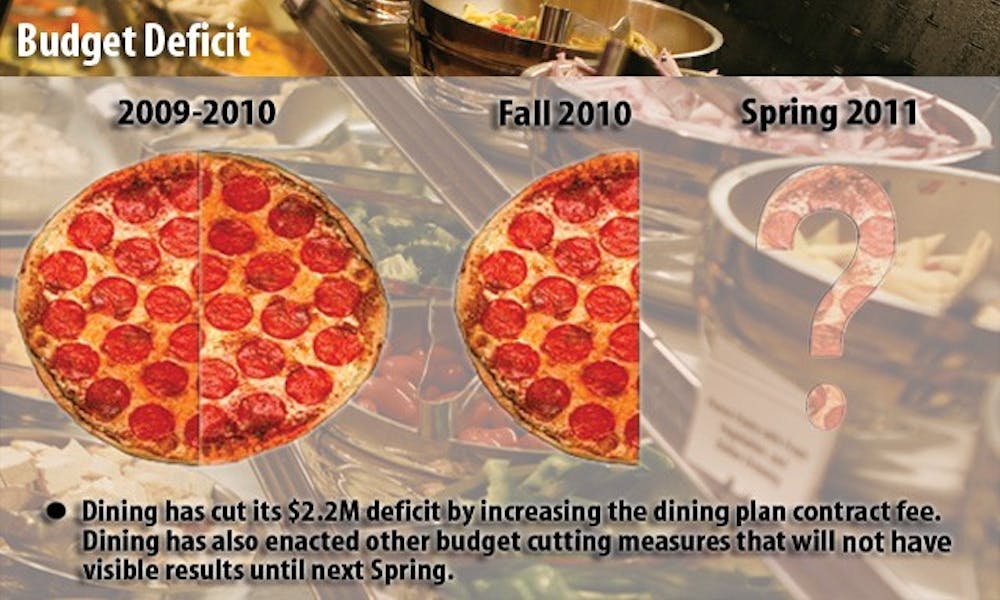The current financial state of Duke Dining is still unknown and cannot be fully determined until next Spring, said Vice President for Student Affairs Larry Moneta.
The reduction of the $2.2 million deficit in Dining Services will depend on the outcomes of several measures implemented this year, though major changes will not take place until the Fall of 2012, Moneta said.
“I want to stop haphazard, chaotic changes,” he said. “I see the rest of this year and all of next year as the planning period.”
Dining created a series of “quick, short-term solutions” last Spring and put them into effect for the 2010-2011 academic year, said Director of Dining Services Jim Wulforst. He added that revenue has increased this year and transactions are up approximately 4 percent as a result of new policy changes and renovations in eateries such as the Tower and Plate & Pitchfork.
The increase in the dining plan contract fee from $19.50 to $90 generated the most substantial revenue, cutting the deficit in half, Moneta said. Other changes to cover the rest of the deficit included eliminating faculty and staff discounts, increasing the commission rate for non-contracted eateries and canceling the refund of unused food points at the end of the year.
The contract fee increase, which emerged after one year of negotiations between student leaders and administrators, will continue until at least fiscal year 2013, which runs from July 1, 2012, to June 30, 2013, Moneta said.
“The first year after we have a fully balanced budget, we’ll revisit the issue,” he said. “I’m not a fan [of the fee]... but we can’t eliminate it until we have decreased the full deficit.”
Duke Student Government President Mike Lefevre, a senior, initially agreed to a one-year dining plan contract fee increase, adding that he felt “cheated but not altogether surprised” when the fee was extended to subsequent years in September. The original increase was approved under the administration of Kemel Dawkins, the former vice president for campus services who left the University in June.
“Clearly, this is a no win for student government,” Lefevre said. “But you will not see the fee increase beyond where we are right now.”
Lefevre and other representatives from student organizations, such as the Duke University Student Dining Advisory Committee, are meeting monthly with administrators to discuss potential changes in dining.
Sophomore Chris Brown, Duke Student Government vice president for athletics and campus services, said his top priority in the meetings is to reduce any “extraneous burdens” placed on students.
“There are no quick fixes when it comes to Dining and the Dining deficit, but we’re heading in the right direction,” he said.
Moneta added that almost every aspect of Dining is under consideration—including the Merchants on Points program, vendor commission rates and undergraduate board plans—with a goal of increasing traffic to on-campus eateries. A new assistant vice president for housing and dining, Rick Johnson, has also been hired and will start Feb. 1.
Several suggestions from last year, such as closing some eateries, did not take place. Additionally, plans for a complete renovation of the West Union Building are on hold because funds are not currently available, Moneta said.
He added that he hopes the discussions with student leaders will result in long-term changes for Dining that fall in line with the University’s commitment to sustainability and healthy food options.
“I could erase the deficit in a heartbeat by offering all packaged and unhealthy foods,” Moneta said. “I have a fantasy of [Duke Dining] being the healthiest, greenest, most enjoyable food system in America. Ask me how we’re going to get there—ask me again in two years.”
Get The Chronicle straight to your inbox
Signup for our weekly newsletter. Cancel at any time.

